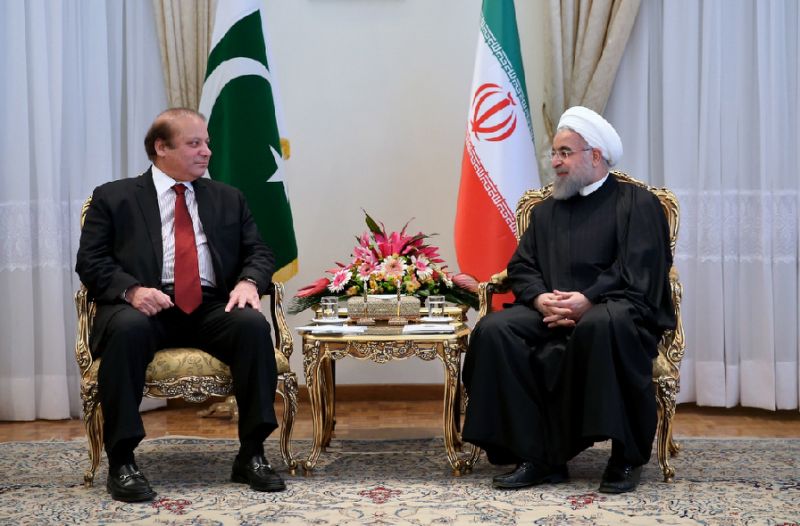
Ties between Iran and Saudi Arabia are deteriorating, and Pakistan appears to be playing a mediating role. There is more at stake in this triangular relationship than regional security or narrow national interests. Easing of religious and sectarian tensions, as well as the stability of the Middle East rest on whether Pakistan can moderate a long-standing split between Riyadh and Tehran.
Pakistan has the third-largest Muslim population in the world, robust military capabilities, and is a leader in the Islamic world. It has close ties with both countries, but Pakistan’s relationship with Saudi Arabia, a fellow Sunni-majority state, has always been deeper. There are questions on whether Pakistan can pursue a truly neutral course between Riyadh and Tehran. Yet, Islamabad’s diplomatic push to be an arbiter between Iran and the Kingdom seems to belie these concerns, and Pakistan’s current civilian government is to be commended for its prudence.
Pakistan’s neutral posture can be attributed to two events. First is the Gulf Cooperation Council’s crackdown against the Houthi rebels. The conflict in Yemen continues to exhibit a largely sectarian color, with the predominantly Shia Houthis likely backed by Iran, and opposed by most GCC members. Pakistan could have easily advocated for the restructuring of Yemen on the lines of Operation Decisive Storm, which sought to restore the supremacy of President Abd Rabbuh Mansur Hadi, and thwart the ascendancy of Houthi rebels. Instead, Pakistan issued a joint parliamentary resolution, in unanimity, to remain neutral. This landmark decision marked a massive shift from Pakistan’s historical obsession with Sunni supremacy, and even earned the ire of some of its allies.
The second factor that explains Islamabad’s stance is the rise of extremism and terrorism within Pakistan itself. Events such as the Jinnah International Airport attack as well as the one on Army Public School, Peshawar have resulted in realization that alignments based on sectarianism can be dangerous. The fact that Pakistani troops are actively involved in countering an array of terrorist groups in North Waziristan, as part of Operation Zarb-e-Azb, demonstrates that the country is prioritizing counterterrorism over sectarianism.
As of now, Prime Minister Nawaz Sharif and General Raheel Sharif have sought to reach out to both Tehran and Riyadh to ease tensions. Prime Minister Sharif’s repeated claims that both states carry equal significance for Pakistan are laudable for a state that was obsessed with Pan-Islamism, especially during the late 1970s. Current efforts are reminiscent of 1997, when Pakistan had played a pivotal role in normalizing ties between Saudi Arabia and Iran on the sidelines of the Organization of Islamic Council summit. That initiative was also taken by the same Pakistan Muslim League-Nawaz (PML-N) government, elements of which are known to be close to Saudi Arabia.
Both Iran and Saudi Arabia have been warm and receptive towards Pakistan’s efforts. The Iranian defense minister’s acknowledgement of Pakistan’s positive role, as well as Pakistan’s inclusion in the Saudi-led 34-nation alliance to counter terrorism, are prime examples of tactful diplomacy that the region desperately needs.
The Pathankot attack also serves as a wake-up call for Pakistan. The nuanced response from the Indian government in its aftermath, as well as allowing space for Pakistan to clampdown on Kashmir-centric groups such as the Jaish-e-Mohammed serve as an opportunity, and invariably have a bearing on how Pakistan views terror-based outfits that target India. So far, the optics are encouraging as far as India-Pakistan ties are concerned, where caution has been exercised by the former over stereotyping its rival as not doing more to boot out such groups. Whether Pakistan’s response helps in normalizing relations between the countries remains to be seen, but such events reinforce that counterterrorism efforts need to continue.
Pakistan’s role as a mediator in the Middle East is praiseworthy. With its multi-ethnic and diverse populace, and its coexistence being threatened by the activities of rogue elements from within, efforts to diffuse tensions between major regional rivals sets an ideal precedent.
***
Image: Anadolu Agency, Getty


